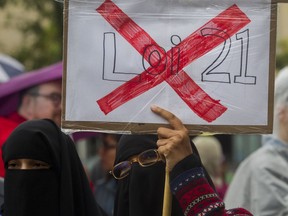With so much diversity in they city’s classrooms, ensuring secularism requires sensitivity, curriculum oversight and monitoring.

The Coalition Avenir Québec government continues to struggle with understanding, or perhaps accepting, the reality that Montreal is very different than the rest of Quebec.
In this regard, Bill 21 is vague, with general statements about the separation of church and state and religious neutrality, without strategies to monitor compliance with those objectives. Its focus on appearance was a rather simplistic smokescreen, perhaps to appease the CAQ base by ostensibly targeting those who don’t look like the majority, without fully understanding the reality and challenge of establishing true secularism in schools that are culturally, religiously and racially diverse.
And what about enforcement? Where would direct oversight come from?
This government also passed Bill 40, which replaced French school boards and local commissioners, all elected, with regional service centres, a structure more directly accountable to the Education Ministry. If there are problems in a particular school, a parent would typically take it up with the school and principal, but what if the principal is part of the problem or caught up in a conflict? Arguably, this situation might have been different with a school board and local elected commissioner, accountable to, and more familiar with, the makeup of their district than the service centre, which isn’t as integrated with the community.
Quebec’s teacher shortage — aggravated by Bill 21’s exclusionary focus — is another element of concern, as the quality of teachers will inevitably dwindle.
In Montreal, each school, community and pocket of demographics is unique, and differs from the one-size-fits-all model of Quebec on which the CAQ seems fixated. Because there are so many religions, languages, backgrounds and ethnic communities among students and teachers — unlike the cultural monolith of much of Quebec — ensuring secularism requires sensitivity, curriculum oversight and monitoring. Furthermore, separate courses about religion shouldn’t necessarily be taboo. Fostering dialogue and mutual understanding is healthy for greater social cohesion.
This all could only succeed, however, if Quebec City understands or accepts that Montreal is different.
Robert Libman is an architect and planning consultant who has served as Equality Party leader and MNA, mayor of Côte-St-Luc and a member of the Montreal executive committee. He was a Conservative candidate in the 2015 federal election.